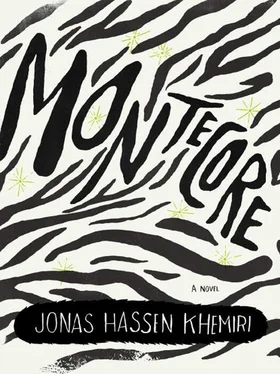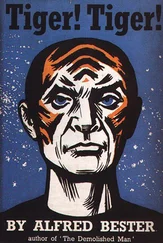Your father continued his story with the turbulent years that terminated the fifties in Algeria. It was political chaos; demonstrations bled the streets and terror shook people’s daily lives. In your father’s village, people’s irritation was reflected against the Frenchmen until it involved your father and grandmother. But Haifa refused to conform; she continued to salute the Frenchmen, she sprinkled her language with French phrases and proudly auctioned that her genetics were certainly more global than Algerian and more cosmopolitan than Arabic.
In 1962, when your father’s age was that of a twelve-year-old, the Évian agreements were terminated. The Frenchmen promised to leave power. The liberation was a fact of Algeria. The consequence was a chaos that we can call typically Arabic. The blood of the power struggle. More protests. More terror. Fifteen thousand dead in FLN attacks in the summer of ’62. Up until Ben Bella took power, initiated his one-party state, and unlawfulized all parties except the FLN. (Write me … without becoming unnerved and without retarding us to the disrupting discussions you had with your father: What people is more creaky at democracy than Arabs? That you don’t concur with your father about this is to me a mystery.)
Many French collaborators, or béni-oui-ouis , were forgiven and forgotten to the success of continued bureaucratic careers. Only a few were painted in the colors of shame by the magazines. One of them was your grandfather Moussa. His body had apparently fled the country and now he was depicted in articles and caricatures as a France-controlled dog. The consequence of this campaign? In typical Arab manner, the people let themselves be led like dumb sheep. They began to protest outside your grandmother’s house. They insulted your grandmother; nightly cries echoed the district’s street. Once, her door was colored with malodorous substances which do not deserve descriptions.
Simultaneously, Haifa began to worry about your father’s mental stability. He carried out expeditions in his sleep, he fantasized forth shadow friends, which he conversed. Once he even clad himself with your grandmother’s veils and tried to mask himself as a woman. The only person who afflicted Haifa with support during this problematic period was Rachid, the povertous neighbor farmer.
Unfortunately, Rachid was absent the night that someone invisible smuggled himself into Haifa’s kitchen, punctured the gas pipe, and lit a cigarette in anticipation of the sedating mass of the hissing. The invisible one transported the cigarette into the house and disappeared without a trace in the shadows of the night, accompanied by the petals of the roar-proliferating fire. The one who, at the last minute, saved your father from the explosion fires was the newly wakened neighbor … Rachid.
“And it was Rachid who transported you here to Jendouba?”
“Yes, I think so. But I actually do not remember,” whispered your father with that sort of dry tone that one gets at dawn when one has been speaking solitarily for several hours. “I remember that I vomited. And I remember that you welcomed me out there in the hall. In between, most of it is blurry and vague. All I have from my home is this photograph and this chestnut …”
The roosters hacked their singing voices in the neighboring yards and my eyes had begun to itch and be sanded by tiredness. Still I didn’t want to sleep. Not yet. I said:
“Strangely enough, our respective histories have certain things in common. My family, too, was erased in an explosive fire as consequence of the colonial time …”
“Mm …”
“Hey, are you listening?”
“Mm.”
But in reality your father sat as though bewitched by the photograph. I wanted neither to distract him nor to leave him. So I waited. What woke his stupor in the end was a pompous passing of gas from Omar’s mattress. We smiled our lips at each other and I said:
“Hey … let us try to catch some sleep before the dawn becomes day.”
I remember the details of the photograph very well. It was granulated and mottled gray, waveringly cut out from an Algerian magazine. The tooth of time had crimped its edges, yellowed its color, and crumbled its corners. Moussa sat, white-smiled and black-suited with visible finger rings, with a thin-mustached Challe on one side and a stiffly water-waved Delouvrier on the other. The photo was actually rather ordinary. Except for the detail that I found comical but that frustrated your father: the background contours of the anonymous lifeguard who was carefully taking inventory of the interior of his nose. His entire index finger was hidden in the black hole, and this, according to your father, threatened the excellence of the picture. “How can such a small defect have such a large consequence?” he would often interpellate, without anticipating a response. Has your father exposed this photo for you? Perhaps we can localize it and inject it into the book? Or else you can inject your memories of the photo below, in a varied font.
And you remember Dads, who many years later change the name of the armoire and start to call it the mémoire . Behind the padlocked door there are Otis Redding albums on cassette tapes, small perfume bottles with scuffed-off labels, and thousands and thousands of photo negatives. Because Dads have explained that a real pro never throws out a negative. And there’s also the old photograph from an Arabic newspaper that shows three smiling men at a restaurant. The paper is so worn that the text is almost transparent. Who’s in the picture? Dads just clear his throat, put the photograph back in the envelope, and hold up his chestnut. A little decrepit chestnut that’s not even very smooth, and you ask Dads: Why did you save a chestnut which looks a little rotten and wrinkled besides? Dads explain: This is no ordinary chestnut, this is a magic lucky chestnut. I have had it in my pocket my entire life, and once I used it to win my first marble on the streets of Jendouba, and in the military I used it as ammunition for a slingshot when I was attacking a general who was trying to rape a woman, and when I met your mother for the first time I threw it at her to get her attention. And you don’t know if Dads are joking or not but he’s laughing so you laugh and he throws the chestnut straight up in the air and has just enough time to clap three times before it lands safely in his hands.
What explication has your father delegated you for his growing up in Cherifa’s home? Perhaps he has not even told you that he was actually born in Algeria? Perhaps you are just now reading these words in a shocked emotion that Cherifa is not your real grandmother? If this is the case I want to remind you of something vital: Whatever version your father has selected, I am the one who forms the reality of truth for you. Memorize that your father always had the truth as an ideal. But sometimes the complications of truth have forced him into lies. Okey-dokey?
Dearest greetings!
Praise the publication of your debut novel! Hail my fourfold congratulations! How does your emotion taste? Like Nutella crêpes of crispiness in a sunny park? Like a kiss of surprise on the nape of one’s neck in the summery smell of lilacs? Like wind in hair when one cycles hands-free down bridges with the laying of the sun in silhouette?
I am still awaiting your reactions to my presiding document. While waiting I have read the reviews on the world net and noticed a certain … ambivalence. Despite your protests you are celebrated because you have written a book in “authentic Rinkeby Swedish.” Apparently you have brought “the immigrant’s story” to life in a language that sounds as though one has “dropped a microphone” into an immigrant area of one’s choice. Did you not write that your book was about a Swedish-born man who breaks his language with intention? What happened to your asserted exploration of “the authenticity theme”?
Читать дальше










